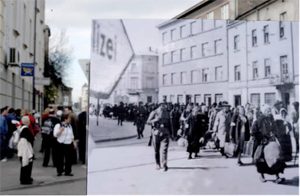In the digital age, it is a challenge for teachers to ensure that their lessons keep up with the increasingly creative and vibrant media-led society in which we live, as well as to ensure that students are kept engaged in their education. It is even more important to engage students at a young age, so as to engender a love of learning early in life.
I love reading books, but fiction is a turn-off for many children. Lovingly crafted, descriptive paragraphs and character profiles have no relevance to their lives, and many are not interested. One of the problems is that fiction is long. Children are absent, miss a class and then are set to pick apart a paragraph on page 238. It doesn't work.
Maps are objects of fetish; there is something special about tracing a route across the London Underground map or blowing the dust off maps that chart countries which don’t even exist anymore. The thrill of places we have never been, or the familiarity of home, all appeal, and can be imagined through the medium of maps. It is no coincidence that with the power to look at almost the whole (can’t find out exactly how much!?) of the globe, the first search the people do in Google Earth is to look at their house. In the classroom, maps can intrigue learners, and be used to add context and depth to learning across the curriculum. Long the reserve of Geography departments, maps that you can access with technology are a cost-effective way to bring the real world into the classroom - giving extended meaning to many subject disciplines.
How can teachers use games to teach complex issues? New Jersey social studies teacher Matthew Farber discusses how the latest games can be used to help students learn about the principles of ethics.

Game designers use cause and effect loops to reward players when they advance in a game. Conversely, penalties exist if a task is a mission is failed. For example, when Batman defeats thugs in an Arkham game, the player -- who takes agency over the character -- may earn a digital badge or a power up. The “fail state” is a setback penalty to the most recent save point. Designers use causal loops with the intention of affecting player behavior; intrinsic satisfaction is typically rewarded right away. Of course, decisions in real life are much harder to define.
Edtech is a truly exciting place, giving brilliant opportunities to teachers and pupils both. Charlie Harrington, Co-head of Knewton’s London office, examines how technology is fundamentally changing the way we learn

While we might not be able to teleport yet, technology has touched almost every part of our lives – from the way we shop, communicate with loved ones, listen to music, search for information, and more. Now technology is making waves in the education sector. Since January, edtech start-ups have raised more than half a billion dollars to fund the “next generation of education”.

One of the remarkable things about laughter is that it occurs unconsciously. You don’t decide to do it. While we can consciously inhibit it, we don’t consciously produce laughter. That’s why it’s very hard to laugh on command or to fake laughter.
Local history is a bit like this in that students acquire local historical knowledge unconsciously, but we find that use of this knowledge is inhibited by its unconscious acquisition; it is not ‘learned’, thus, it seems, students regard it to be of much lesser value than knowledge acquired more formally. On the other hand, I have found many students to be insular, most would find it difficult to place people and events in their correct historical context, as they did not have sufficient knowledge of the world beyond their local area. With a keen interest myself in local history, I found this enabled me to build strong relationships with students, as I was taking an interest in them and the places they were familiar with.
This article aims, therefore, to overcome students' usual inhibitions, and help them to use their local knowledge to drive forward their historical understanding, to expand their knowledge and horizons.

A community-driven platform for showcasing the latest innovations and voices in schools
Pioneer House
North Road
Ellesmere Port
CH65 1AD
United Kingdom